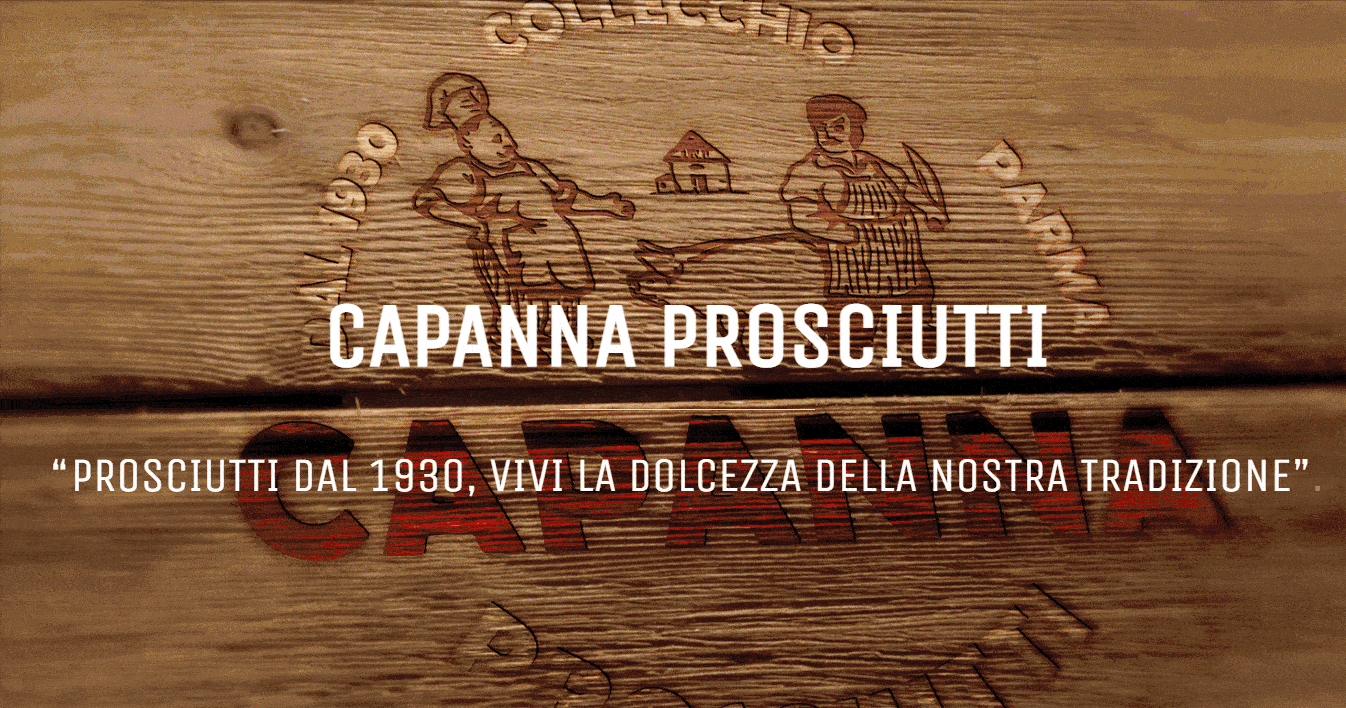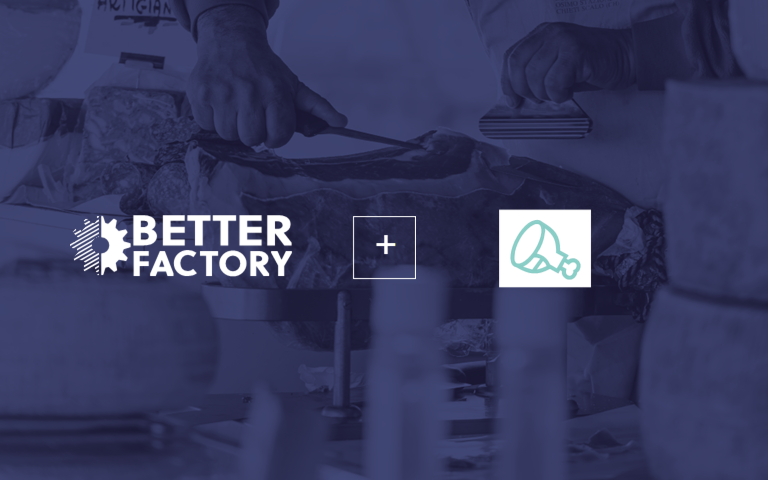Over the next couple of weeks we’ll be running a series of 1:1 interviews with the KTE (Knowledge Transfer Experiment) teams that joined Better Factory through our first open call. These incredible teams are each made up of a SME, artist and technology provider, working together to develop new and personalized products, become cyber-physical systems, and transforming into Lean-agile production facilities.
SMARTHam are collaborating on supervised manufacturing and real-time traceability in ham production. The KTE focuses on increasing the efficiency and attractiveness of a highly restricted and ancient product through digitization interventions in the production process, as well as in customer experiences.
Their KTE team includes:
- Capanna Alberto SpA – Manufacturing company (Italy)
- Studio De Wilde – Artist (Belgium)
- SirmiumERP d.o.o.- Technology supplier (Serbia)
So let’s jump into the interview!
Hello, thank you for joining us! Why did you decide to apply to Better Factory?
Capanna Alberto SpA (Manufacturing company): We applied because we aim to innovate one of the most traditional and regulated food products in the world, Parma ham, and Better Factory is a platform that allows companies such as ours to test new ideas and experiments.
Studio De Wilde (Artist): We applied because we have a great forward thinking trans-sectoral team that is willing to think out-of-the-box to tackle problems hands-on and come up with creative solutions for a traditional product. That’s a wonderful challenge.
SirmiumERP d.o.o. (Technology supplier): The entire idea behind this project is very promising and interesting for us as a Tech provider. We are already involved in digitalization in fresh meat production. This was a great opportunity for us to try to apply the newest technologies to ham production. Digital traceability involved with AR, blockchain, and gamification technologies will all offer new possibilities and new sales channels.

How do you think Better Factory will help you?
Capanna Alberto SpA (Manufacturing company): By implementing new technologies to our old and traditional processes, in a way that does not compromise the production procedures required by law. It will also make the product more attractive and distinctive, especially for the younger population.
SirmiumERP d.o.o. (Technology supplier): We are already experienced in the technologies and solutions that we want to apply. But, any help and new ideas on how to innovate our solution, and to make it applicable to a wider range of possible end customers, is more than welcome.
How has the importance of traceability in the food market evolved in recent years and why do you think this has been the case?
Capanna Alberto SpA (Manufacturing company): The objective of food traceability, in fact, is to guarantee maximum safety for the final consumer. It is even more important for high quality and traditional products like our Parma ham.
What tools do you know for traceability control and why did you choose RFID?
Capanna Alberto SpA (Manufacturing company): The hardware of the RFID system collects all data concerning the position of the product at a given time and throughout its life cycle, allowing the software to recognize it and provide administrators with a complete view of the progress of the production, distribution and of sale. For an artisanal and conservative production, like that of of Parma ham, this is a significant optimization.
Studio De Wilde (Artist): RFID, Blockchain, QR-tags. In my particular case QR-tags were an obvious choice to trigger a digital experience for the customers in the physical world.
SirmiumERP d.o.o. (Technology supplier): We already have experience with RFID, NFC, QR, Barcodes, and more In our opinion, RFID is the perfect match for this type of production process. It will offer traceability in digital form, easy inventory check and integration with other sensors and IoT devices. At the end of the project, our plan is to connect information from RFID tags to a blockchain network that we are planning to develop.
We applied because we aim to innovate one of the most traditional and regulated food products in the world, Parma ham, and Better Factory is a platform that allows companies such as ours to test new ideas and experiments.
Capanna Alberto SpA (Manufacturing company)
What are the economical, technical and societal impacts of your project?
Capanna Alberto SpA (Manufacturing company): The economic impacts are the increased efficiency and improvement of the production process management (cost and time), as well as the development of new skills within the societal environment.
Studio De Wilde (Artist): Story and experience design are important societal and economic drivers, and can have a massive impact on consumer behaviour or even open up new markets (i.e. NFT’s). The impact of the artistic input and solution can therefore not be underestimated. Combining gamification with product traceability is the future.
SirmiumERP d.o.o. (Technology supplier): Digital traceability is very important from a food safety point of view. It has a huge societal impact. By applying all information in digital form and connecting them with AR and WebXR, we could expect additional economic possibilities for the SME. Also, those technologies could offer brand protection.
Is it fundamental to consider traceability as a necessary element in all sectors?
Capanna Alberto SpA (Manufacturing company): It certainly is essential for all markets, but first of all for food. Food products are very important in the everyday life of people.
Studio De Wilde (Artist): Yes, probably.
SirmiumERP d.o.o. (Technology supplier): In our opinion, yes.
Do you think that improved traceability can help you enter new markets with stricter regulations?
Capanna Alberto SpA (Manufacturing company): It will become essential to enter into dialogue with new markets and consumer targets in the near future, to be connected always and in any case through the product.
If you’d like to learn more about SMARTHam and their experiment, don’t forget you can check out their KTE page here, including a cool video!

